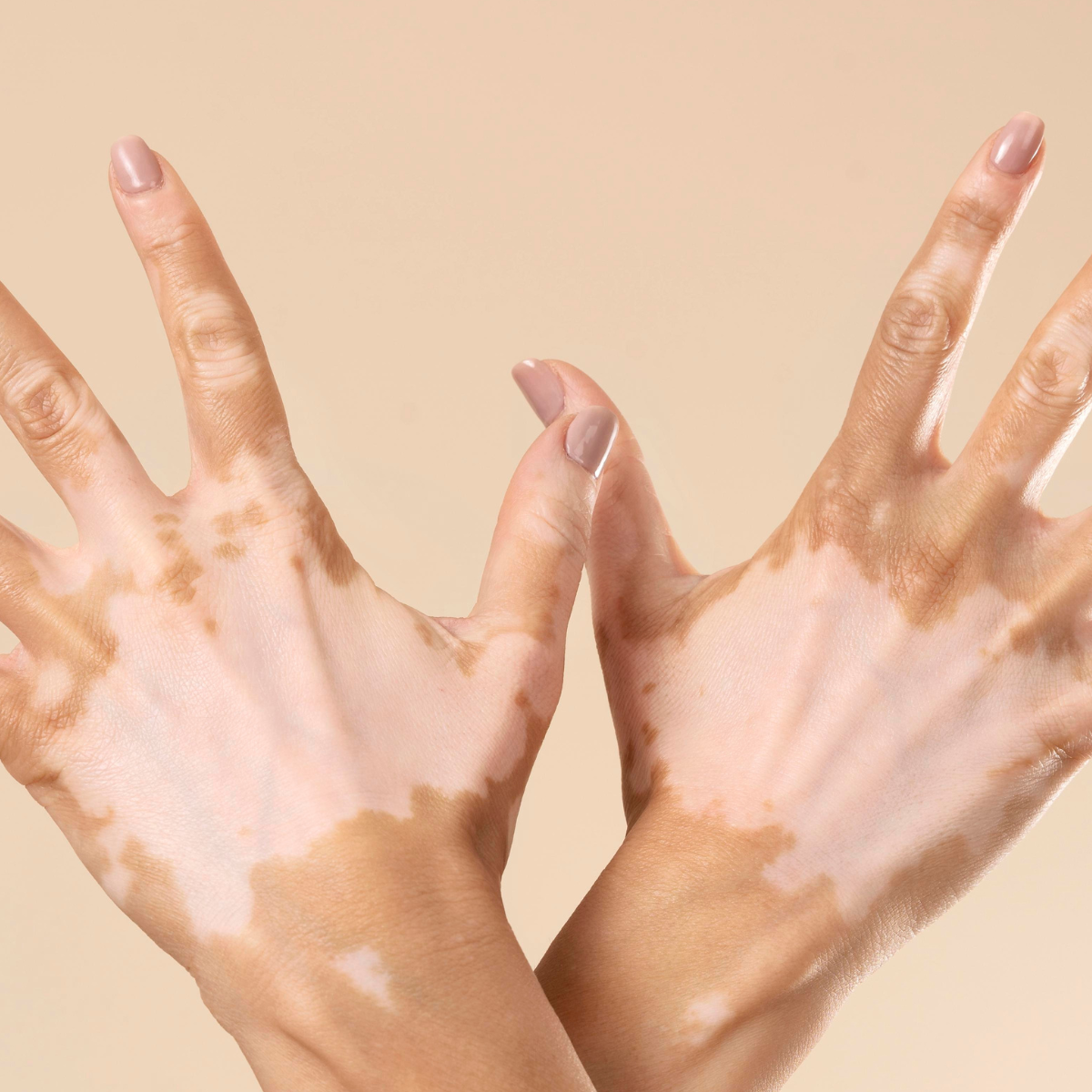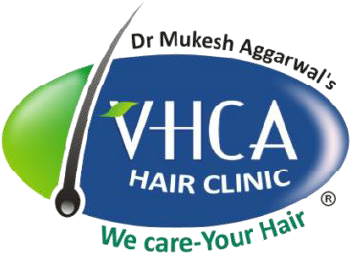Since 1928VHCA Hair Clinic World's 1st Ayurveda Hair Clinic
Vitiligo
Vitiligo is a long-term skin condition characterized by the loss of pigmentation, resulting in white patches on the skin. This occurs when melanocytes, the cells responsible for producing melanin (the pigment that gives skin its color), stop functioning or are destroyed. Vitiligo can affect any part of the body, including the face, hands, feet, and even hair. Though it’s not a life-threatening condition, it can have a significant impact on a person’s emotional and psychological well-being

Causes of Vitiligo
The exact cause of vitiligo is still not completely understood, but several factors are believed to contribute to its development:
Autoimmune Response: In many cases, vitiligo is thought to be an autoimmune condition, where the body’s immune system mistakenly attacks and destroys melanocytes.
Genetics: There is a genetic predisposition to vitiligo. It often runs in families, and individuals with a family history of vitiligo or autoimmune diseases are at a higher risk.
Environmental Factors: Certain environmental triggers such as sunburn, exposure to industrial chemicals, or stress can contribute to the onset or exacerbation of vitiligo.
Oxidative Stress: An imbalance between free radicals and antioxidants in the body can lead to oxidative stress, which can damage melanocytes and lead to depigmentation.
Symptoms of Vitiligo
White Patches: The primary symptom of vitiligo is the appearance of white or depigmented patches on the skin.
Symmetrical or Asymmetrical Patterns: These patches often appear symmetrically on both sides of the body, though they can sometimes be isolated to one area.
Hair Color Change: Hair growing from the affected areas may also lose color, becoming gray or white.
Sensitivity to Sun: The depigmented skin may be more sensitive to sunlight, increasing the risk of sunburn.
Ayurveda’s Approach to Vitiligo
Ayurveda, with its focus on holistic healing and balancing the body’s doshas (Vata, Pitta, and Kapha), offers a unique and effective approach to managing vitiligo. Known as “Shwitra” or “Kilasa” in Ayurveda, vitiligo is considered to be caused by an imbalance in the Pitta dosha, which is responsible for skin pigmentation. When aggravated, Pitta can disrupt the production of melanin, leading to the development of white patches.
Ayurveda aims to treat vitiligo by:
Restoring Dosha Balance: Ayurveda focuses on balancing the aggravated Pitta dosha and detoxifying the body to restore normal pigmentation.
Detoxification (Shodhana): Panchakarma therapies are used to eliminate toxins from the body that may be contributing to the disease.
Rejuvenation (Rasayana): Ayurvedic treatments often include rejuvenating therapies and herbal remedies that nourish the skin and improve the function of melanocytes.
Diet and Lifestyle Adjustments: Ayurveda emphasizes the importance of a balanced diet and lifestyle in managing vitiligo and preventing further progression of the condition.
Ayurvedic Treatments for Vitiligo at VHCA
At VHCA Ayurvedic Hair Clinic, we offer a range of personalized treatments that focus on both internal and external remedies to treat vitiligo. Our approach is holistic, addressing the root cause of the condition rather than just the symptoms.
Herbal Medicines:
Our Ayurvedic experts recommend specific herbal formulations to help restore balance to the Pitta dosha and rejuvenate the skin. These medicines improve the immune system’s function and help regenerate melanocytes.External Applications:
VHCA provides specially formulated Ayurvedic creams and oils that help in repigmentation and nourishing the skin. These external treatments help restore color to the affected areas and soothe the skin.Diet and Lifestyle Guidance:
Diet plays a significant role in Ayurveda's approach to treating vitiligo. Our experts recommend a customized diet plan that avoids foods that aggravate Pitta dosha and includes foods that support skin health and detoxification. Additionally, lifestyle modifications, such as stress management techniques like yoga and meditation, are often advised to help in the management of vitiligo.Sun Protection and Skincare:
Individuals with vitiligo are advised to protect their skin from sun exposure. VHCA offers natural, Ayurvedic-based sun protection solutions to help shield the sensitive areas from harmful UV rays while also promoting healing.
Key Ingredients in VHCA’s Ayurvedic Vitiligo Treatments
Bakuchi (Psoralea Corylifolia): Known for its potent effects on skin pigmentation, Bakuchi is a vital herb in Ayurvedic vitiligo treatment, helping to stimulate melanin production.
Khadira (Acacia Catechu): A powerful detoxifying herb, Khadira helps purify the blood and improve skin health.
Neem (Azadirachta Indica): Neem is used for its anti-inflammatory and immune-modulating properties, supporting the body’s natural healing processes.
Manjistha (Rubia Cordifolia): Known for its ability to purify the blood and promote skin healing, Manjistha helps restore the skin’s natural color.
Haridra (Turmeric): Turmeric is used for its antioxidant and anti-inflammatory effects, helping to soothe the skin and encourage pigmentation.
Connect for wellness: Begin Your Journey Today
